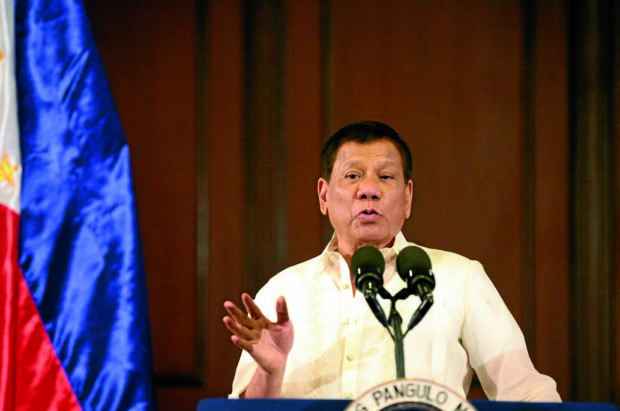President Rodrigo Duterte assured Filipinos that their privacy would be protected as he signed into law the national ID system.
In a ceremony at Malacañang on Monday, Duterte signed into law the Philippine Identification System Act or “PhilSys,” calling it a monumental legislative measure.
Under the new law, Duterte said a single national identification system called “Phil ID” which would promote “good governance, enhanced governmental transactions and create a more conducive environment for trade and commerce to thrive.”
Duterte said the law would also push for “the efficient delivery of services to our people through a single ID that will be issued to all citizens.”
The national ID system will not only help people in transacting with government and private entities but will also contribute in deterring criminality and terrorism, Senator Panfilo Lacson said.
“At long last, we now have a law that breaks the formidable barriers between government and the downtrodden and the poor due to the lack of identification,” Lacson said.
Currently, there are 33 different forms of “functional” identification cards issued by various government agencies, which according to the senator, may lead to “duplication of efforts, wastage of resources, and uncoordinated identity approaches.”
Under the newly-signed law, a foundational ID system dubbed as PhilSys will be created.
It will have three components: the PhilSys Number (PSN), PhilID and PhilSys Registry.
Duterte said the new Phil ID would cut down bureaucratic red tape, avert fraudulent transactions and reduce corruption.
There was no need for Filipinos to fear for their privacy as safeguards have been put into place in crafting the national ID law, Duterte assured the public in his speech.
Under the proposed national ID law, the Philippine Statistics Authority (PSA) will collate the full name, sex, birthdate, address, citizenship and blood type of Filipino citizens and encode them in a centralized database.
“Several administrations before me have tried but failed to implement this very important measure partly because of the apprehensions furthered by some groups about privacy and data security among others,” Duterte said.
“Let me be very clear about this. The information that will be included will not be any different from the information already in the possession of the Philippine Statistics Authority or the former NSO, GSIS, PhilHealth, Pag-ibig Fund, Comelec and other agencies that gather personal data,” he said.
Duterte also assured that the PSA would work closely with the National Privacy Commission, the Department of Information and Communications Technology and a multi-agency coordination council to address issues involving privacy and security.
“There is, therefore, no basis at all for the apprehension about the Phil ID unless of course that fear is based on anything that borders to illegal,” Duterte said.
“If at all, the Phil ID will even aid in the drive against the social menace of poverty, corruption, and criminal issues as well as terrorism and violent extremism,” the President said.
